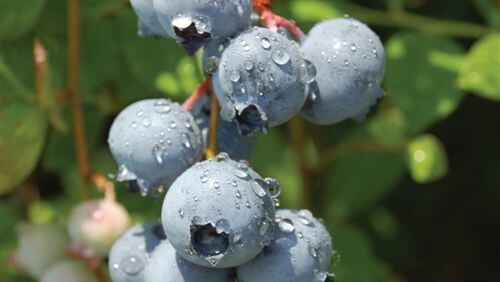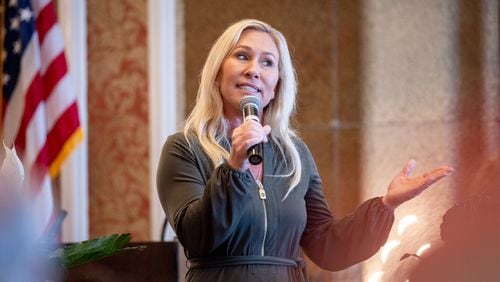Q: Do blueberries need full sun at all times of the year? My planting spot gets full sun for eight months a year but in winter my house blocks the sunlight there. Ben Giacchino, Dawson County
A: I think you'll be fine if the "full sun" occurs during the spring, summer, and fall growing season. These shrubs don't really need much light during winter.
Q: I bought a fertilizer meant for lawns (32-0-8) to use on my bamboo. Can I also use this on trees, camellias, hydrangeas, azaleas and other perennials? Lynn Weinberg, email
A: I think it would be better for your shrubs to use either a general purpose landscape fertilizer like 16-4-8 or a slow-release organic fertilizer like Milorganite, Holly-Tone, or E B Stone. That said, plants don't read fertilizer labels, so I could also see using the lawn fertilizer at a rate of 1 pound per 1,000 square feet of landscape area applied twice per year. It's your choice.
Q: Thirty years ago I planted fifty Leyland cypress trees as a privacy screen. They are now forty feet high, but some of them appear to be dying from the bottom up. A friend told me that they have had their useful life and there is nothing that I can do. David Harris, Jonesboro
A: I could agree with your friend,but then I'd have to explain how that long line of huge Leyland cypress, growing a couple of miles south of Jonesboro on Highway 54, has survived just fine for so many years. My bet is that the planting there was done on what was once agricultural land. Over the years, the tree roots have been able to spread easily into the soft soil nearby. This gave them the ability to survive last year's drought and other stresses. Mature Leyland cypresses that were originally planted poorly suffer greatly in a drought. Their thin bark splits and admits canker fungi, which eventually cause their death. The best you can do with your plants is prune out dead branches and water in times of summer drought.
Q: Is it advisable to use year-old tomato seeds that were stored in the house? Are there extra steps that should be done to ensure successful germination? Karen Garlow, email
A: Unless you have a rare heirloom tomato variety, saving seed isn't worth the bother. Vegetable seeds lose typically 10 percent to 50 percent germination ability from year-to-year depending on how they were stored. My advice is to buy new, fresh seed.
Q: Why don't I see many mature American beech trees in the area? I see a lot of juveniles with tan leaves but mature trees seem to be limited to low areas. Is the climate a limiting factor for American beech trees? Ken Zeestraten, Cumming
A: I think the limiting factor for American beech is shade, not climate. The juvenile trees grow very slowly underneath the cover of pines and hardwoods. But if a big tree falls and creates a sunny opening the juvenile trees quickly take off, competing with one another until one finally emerges as a large, notable beech tree.






